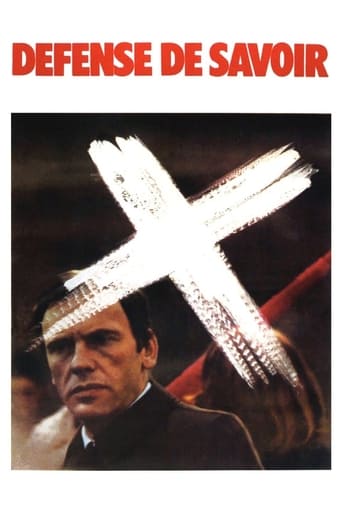dbdumonteil
After her sophomore effort ("Le Voleur De Crimes" )which was extremely demanding and thus might have been off-putting for the mainstream audience ,Nadine Trintignant came back to a much more conventional,accessible style :her third movie feat Deneuve and Mastroiani was a blockbuster ("Ca N'arrive Qu'Aux Autres" but some may find it a bit facile -telling the death of a child can easily move the audience);and then "Defense De Savoir".It is as much trendy ,as much part of the seventies French zeitgeist as "Voleur De Crimes" is an anomaly in the routine of the French thriller.In the wake of May 68 (and of the success of"Z"),political movies began to emerge ,becoming one of the dominant genres of the decade :André Cayatte,who,let's be fair ,had begun long before the craze ,Yves Boisset,even Marcel Carné ("Les Assassins De L'Ordre")or Pierre Granier-Deferre ("Adieu Poulet");Generally right-wing politicians were the villains :such is the case in the movie I'm writing about .Jean-Louis Trintignant ,who was the "hero" of "Voleur De Crimes" teams up again with his wife/director .The director's (and lead actor's) daughter,Marie Trintignant ,who met with a tragic end, appears as the little girl.
MARIO GAUCI
This is a convoluted but interesting murder mystery with political overtones; the revelations (verging on an ironic banality) are presented intermittently via confessions made by a variety of characters which come as a series of flashbacks. It's aided a great deal by a splendid cast (featuring several veterans of the French New Wave): Jean-Louis Trintignant, Michel Bouquet, Charles Denner, Juliet Berto, Bernadette Lafont, Marie Trintignant and Claude Pieplu; the best performances, in my estimation, are those given by Berto and Denner, though the scenes involving the two Trintignants have an obvious intimacy about them as to make them quite special (this film was a real family affair, as it was directed by the wife of one and the mother of the other!). Composer Bruno Nicolai also adds a valuable contribution to the fray with his good score.


